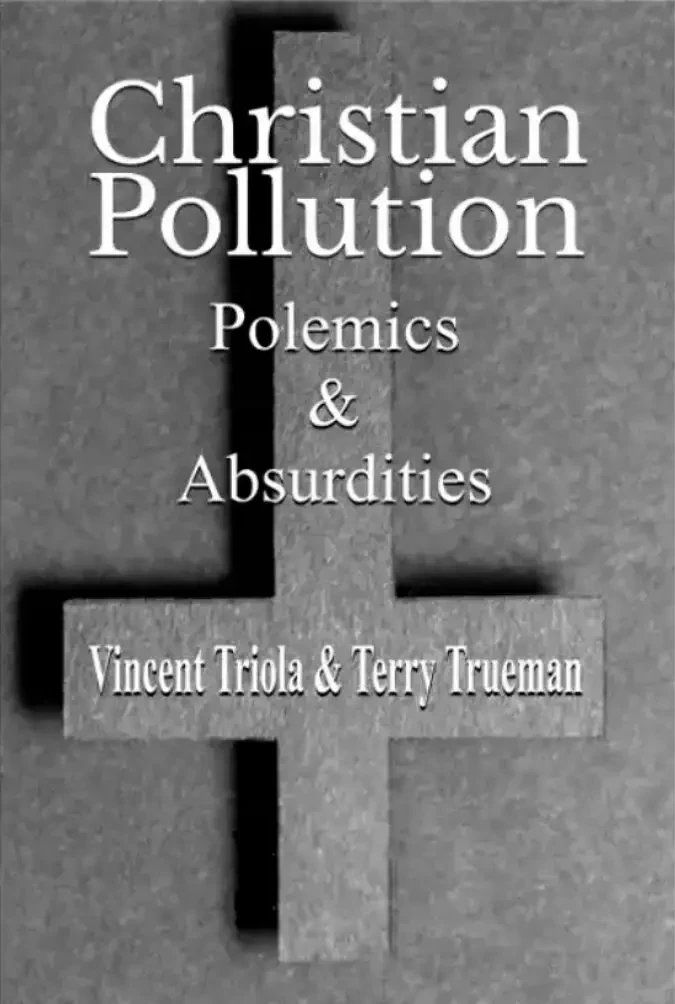Physical, Cognitive, and Spiritual Pollution
Wherever you live, you can find trash. In the middle of the Atlantic ocean, there is a swirling island of trash, and on the slopes of Everest, climbers’ bodies and trash litter the mountain. Humans have left their mark on the planet in such a way that makes pristine nature nearly impossible to experience. Like human refuse staining the world, Christianity pollutes the physical, cognitive, and spiritual landscape.
The Physical Pollution
Christianity is real. People think of religion as ideology, overlooking the reality of this faith. Merely opening your eyes brings the tangible Christian pollution into view. Throughout the United States there are tens of thousands of churches, sometimes double-digit numbers even in small towns.
Christianity manifests beyond churches, heard in protests outside abortion clinics. They knock on doors bringing their good news or swinging signs at Trump rallies. Driving through the bible belt, you can barely find a radio station not thumping bibles across the airways.
The Christian iconography pollutes the visual landscape with fish symbols on cars, crucifixes, and art hanging on walls in professional buildings, street graffiti, and printed on the money in your pocket.
The Cognitive Pollution
From birth, people living in Christian-dominated cultures undergo Christian indoctrination. Even if you were born into an atheist family, you likely hold values derived from Christian exposure. This pollution of mind litters the vast media landscape in accidental or deliberate promotions of Christian values seen in the savior archetype (Jesus Christ symbolic characters) who sacrifice themselves for the world. So ingrained is this archetype in media, millions of people don’t even notice it blaring from television and books.
Just as polluted as media, institutions often operate with Christianity forming their core motivations or support for their operations. Inadvertently or on purpose, government agencies promote Christianity or uphold religious convictions.
The Spiritual Pollution
If you believe in spirituality, you likely know the Christian pollution that hampers your journey, often becoming a battle to distinguish truth from the Christian smog blinding you to many wonderful, practical, and valuable ideas. Ask anyone who left Christianity, opting for atheism or a personal perspective of God, and they readily tell you of the struggle to attain that view.
No matter who you are and where you are from in the US, you cannot escape the pollution. Recognizing this problem is not enough to free yourself, requiring active learning of the ways this religion influences your life and decision-making. To pierce the pollution obscuring true peace and love, you must critically examine the Christian pollution in order to move to the honest, better place beyond.
Enough
Founded to shed light on Christianity as a root cause of many social issues in the US, Christian Pollution employs polemics, satire, philosophy, & other means to combat the growing Christian theocracy.
Religion's legal right in the US allows for the pollution of institutions and people, demanding criticism of Christianity for holding too much authority. While we agree that religious belief should be protected for all people, it should not be foisted upon anyone in the form of law, culture, or by any other coercive means.
Furthermore, we reveal Christianity's philosophical misrepresentation, which allows this religion to pollute every area of society, most notably law and policy.
On these grounds, we criticize Christianity and reject Christian Nationalism.
FYI
Please note that while a significant portion of the content on this website is factual and informative, some articles are satirical in nature and meant for educational and entertainment purposes. These satirical articles are fictional and meant to provoke thought, challenge ideas, and encourage a deeper understanding of issues. What may seem amusing to some may not be perceived the same way by others.
We encourage our readers to approach these satirical articles with a spirit of open-mindedness, fun, or not at all. Thank you.

